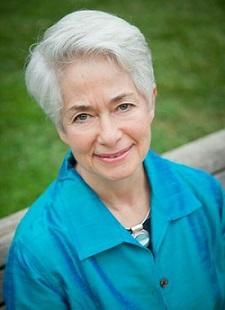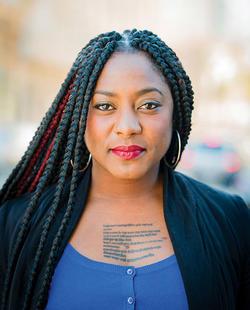Organizers
The Civil Rights Movement. Black Lives Matter. These words call up images of marches and rallies, headlines and court cases. But often we don’t know very much about the people who helped shape these movements. Heather Booth began her journey as an organizer in the early 1960s, working with the Student Nonviolent Coordinating Committee and participating in Freedom Summer before founding the abortion service JANE. In 2012 Alicia Garza co-founded Black Lives Matter, a movement that has galvanized Americans to take action against anti-Black racism. Both women remind us that women’s rights and civil rights are human rights.
Heather Booth had just finished her freshman year at the University of Chicago when she traveled south to Mississippi in the summer of 1964.
It was a crucial moment for the Civil Rights Movement. The aim of Freedom Summer, also known as the Mississippi Summer Project, was to dramatically increase voter registration in Mississippi, a state where fewer than 7% of black residents were registered to vote, and attract national attention to the racist violence of the South. Booth was one of more than 1,000 out-of-state, largely white and Jewish volunteers who worked alongside thousands of black Mississippians. That summer, she found inspiration in women like Fannie Lou Hamer who had been building the civil rights movement on the ground in Mississippi for years. The following year, upon return to Chicago, she founded the Jane Collective, an underground abortion service.
In 1965 abortion was illegal in the United States. Illegal abortions were dangerous and expensive, and Booth aimed to connect women who needed an abortion with providers and resources, despite the serious risks involved in such service: as Booth said herself, “In those days, three people discussing an abortion was a conspiracy to commit a felony murder.” Booth turned Jane over to a collective in 1968, and the Jane Collective ultimately became an abortion provider service; by 1973, when the passage of Roe v. Wade legalized abortion, Jane had safely served more than 10,000 women.
Booth’s commitment to civil rights and women’s rights only deepened with time: she helped found the Chicago Women’s Liberations Union, with the goal of ending gender-based discrimination and class oppression. She also founded the Midwest Academy, a training institute that teaches strategy, tactics, and movement building to other community organizers. In 1992 Booth became director of field operations for the campaign of Carol Moseley-Braun, the first and only female African-American senator and the first African-American US senator for the Democratic Party.
In 2000, Booth became founding director of the NAACP National Voter Fund. Nearly forty years after Freedom Summer, she was once again working to register thousands of new African-American voters and increase voter turnout, advocating for an inclusive voting process in which all voices are heard and all votes count. She remains a leading activist on issues of finance reform and money and power in politics.
Booth traces her deep commitment to social justice to her Jewish values. She particularly cites a trip to Yad Vashem, the Israel Holocaust Museum, as transforming her into an activist, determined to work for justice. She was a founder of Amos: The National Jewish Partnership for Social Justice and is a member of the Selah social justice leadership program.
Heather Booth’s lifetime of activism as an organizer has served countless disenfranchised Americans. Her investment in the Jewish idea of tikkun olam, or repairing the world, has proved to be a lifelong commitment to making real, lasting change in society. As Heather says, “If we organize, we can change the world.”
Black Lives Matter began as a response to the 2013 acquittal of George Zimmerman for the murder of Trayvon Martin. Alicia Garza, upon hearing the Zimmerman verdict, wrote “a love letter to black people” on Facebook, an expression of her grief. Among her impassioned words, three stood out: Our Lives Matter. Her friend and fellow organizer Patrice Cullors altered the phrase and added a hashtag: #BlackLivesMatter.
The following summer, police officer Darren Wilson shot and killed eighteen-year-old Michael Brown in Ferguson, Missouri. Soon the words “Black Lives Matter” flooded social media, then made their way onto the posters, banners, and t-shirts of protesters at the sit-ins and marches that swelled across the country in the aftermath of the shooting. Through Ferguson, awareness of Black Lives Matter spread, not just as a hashtag, but as a movement.
Black Lives Matter practices grassroots-style organizing: founders Garza, Cullors, and Opal Tometi work toward democratic inclusion within the movement. In interviews, Garza takes pains to note that Black Lives Matter was founded by “two queer women and the daughter of Nigerian immigrants.” She and her cofounders have emphasized that while Black Lives Matter was founded to address the killing of young black men, it is also committed to achieving gender equality and inclusivity.
For Garza, the personal is political: raised by her African-American mother and Jewish stepfather, she grew up as Alicia Schwartz and identifies as Jewish. She also identifies as queer and is married to fellow organizer Malachi Garza, a trans male. Intersectionality, an issue that is clearly close to home for Garza, is a priority within the movement.
Before leading Black Lives Matter, Garza had already been working as an organizer, directing People Organized to Win Employment Rights in the Bay Area. Under her leadership the organization secured free public transportation for San Francisco’s youth, fought gentrification, and called attention to police brutality. Today, in addition to helping lead Black Lives Matter, Garza is the special-projects director in the Oakland office of the National Domestic Workers Alliance, an organization that represents and lobbies for caregivers and housekeepers.
Through Black Lives Matter, Alicia Garza has connected people across the country to work against injustice and toward a more inclusive future. She has shaken Americans out of complacency and ignorance, driving politicians and citizens alike to wake up and listen when she tells us what should already be so abundantly clear: that “black lives must matter in this country in order for all of us to achieve the freedom and democracy that we hold up as the core of our nation’s values.”




